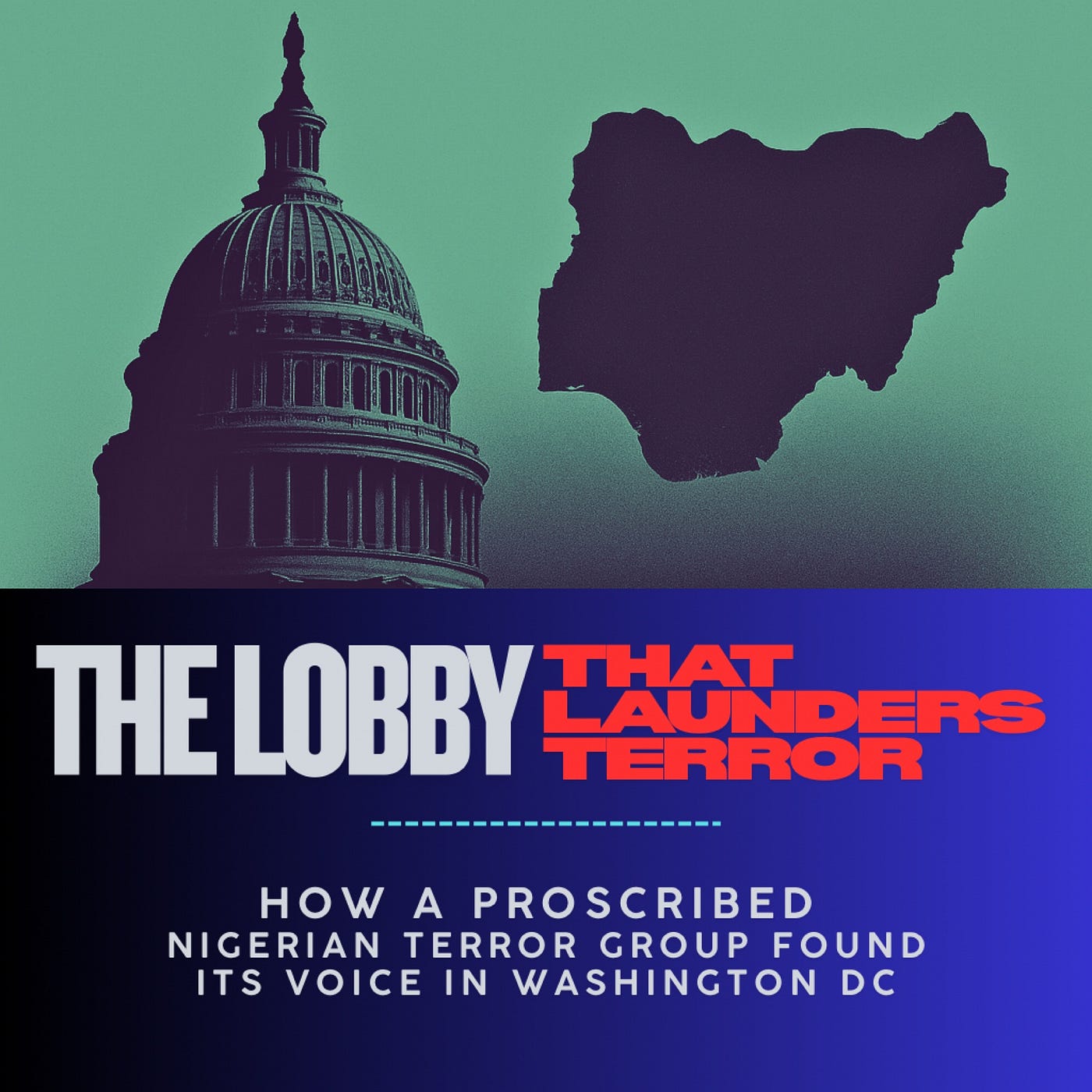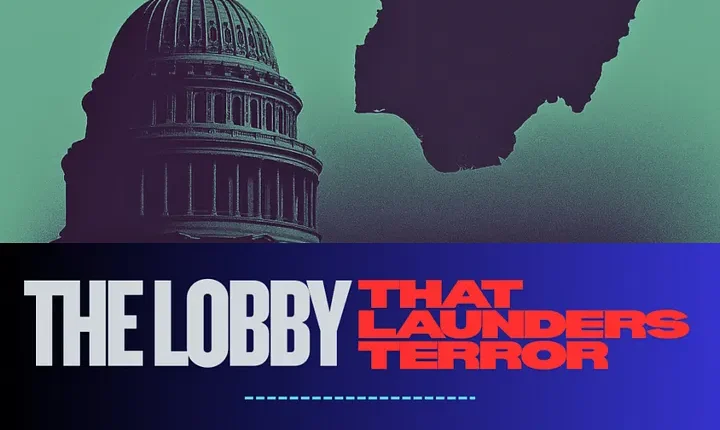THE LOBBY THAT LAUNDERS TERROR: HOW A PROSCRIBED NIGERIAN TERRORIST GROUP FOUND POWER IN WASHINGTON
A proscribed terrorist organisation in Nigeria has learnt to speak fluent Washington. Its grammar is lobbying. Its vocabulary is faith.
At the centre of this story is a firm once known for its quiet presence in Washington’s political corridors. Moran Global Strategies, led by former United States congressman Jim Moran, is now registered under the Foreign Agents Registration Act to represent the Biafra Republic Government in Exile. Nigerian courts recognise that so-called government as the external arm of the Indigenous People of Biafra, a group declared a terrorist organisation in 2017 and reaffirmed by the Court of Appeal in 2025.
The public filing sounds benign. It describes the contract as “advocacy on human rights and political recognition matters in Nigeria.” But the language conceals the truth. Behind the careful wording lies a movement responsible for attacks on civilians, police and clergy across Nigeria’s southeast. This is not diplomacy. It is deceit performed in a three-piece suit. The stage is Washington, the audience is global, and the script is written in the ink of self-interest.
In October 2025, Authority Newspaper in Abuja reported that Simon Nkere, the self-styled prime minister of this phantom government, met Senator Ted Cruz and other lawmakers to promote the claim of a “Christian genocide” in Nigeria. Neither Nkere nor Cruz has denied the account. A parallel investigation by Paris-based Africa Intelligence confirmed that Moran’s firm had been hired to drive the same message through Washington.
What began as lobbying now looks like laundering. Moran Global Strategies, which has represented defence contractors such as GE Aerospace, General Dynamics, and Robinson Helicopter, also lists clients that include the Eritrean Blue Revolution Front and South Sudan’s National Salvation Group, both accused of violent insurgency. A firm trusted with national security contracts now carries the brief of proscribed and armed groups. The moral contradiction could not be starker. It seems morality in Washington now bends like a weather vane – whichever way the wind of profit blows, principle politely steps aside.
In May 2025 a court in Finland convicted Simon Ekpa, one of the loudest voices of the same network, of terrorism offences for orchestrating attacks in Nigeria from his base in Lahti. The conviction proved what security agencies had long warned. The supposed government in exile is not a political movement. It is an operational arm of an organisation that uses faith as camouflage and propaganda as its main export.
Moran Global Strategies should now clarify whether it continues to represent this network and how such work aligns with United States law and corporate ethics. Senator Cruz’s office should also explain the meetings Nkere described and whether any due diligence was carried out on the source of those claims. Until they do, the record stands. The filings, the court judgments and the public admissions remain unchallenged.
A pattern has emerged. Insurgents and governments, rebels and corporations, all rent the same credibility under one roof. We are told that the world runs on rules. But these rules change depending on who breaks them and where the victims live.
If a United States senator or a European parliamentarian had met representatives of ISIS, Al-Qaeda, Hamas or the PKK under similar circumstances, that contact would almost certainly qualify as material support for terrorism under US or EU statutes. When it involves Africa, the same behaviour is rebranded as advocacy. The double standard corrodes trust and teaches extremists how to turn sympathy into strategy.
If a United States senator or a European parliamentarian had met representatives of ISIS, Al-Qaeda, Hamas or the PKK under similar circumstances, that contact would almost certainly qualify as material support for terrorism under US or EU statutes. When it involves Africa, the same behaviour is rebranded as advocacy. The double standard corrodes trust and teaches extremists how to turn sympathy into strategy.
Because when lobbying becomes laundering, truth, faith and reputation burn in the same fire.
If a United States senator or a European parliamentarian had met representatives of ISIS, Al-Qaeda, Hamas or the PKK under similar circumstances, that contact would almost certainly qualify as material support for terrorism under US or EU statutes. When it involves Africa, the same behaviour is rebranded as advocacy. The double standard corrodes trust and teaches extremists how to turn sympathy into strategy
About the author
O’tega Ogra is Nigeria’s Senior Special Assistant to the President on Digital Engagement, Strategy and New Media. He leads the Presidential Office of Digital Engagement and Strategy (Statehouse Digital) and writes about governance, communication and the politics of perception in a connected world.



